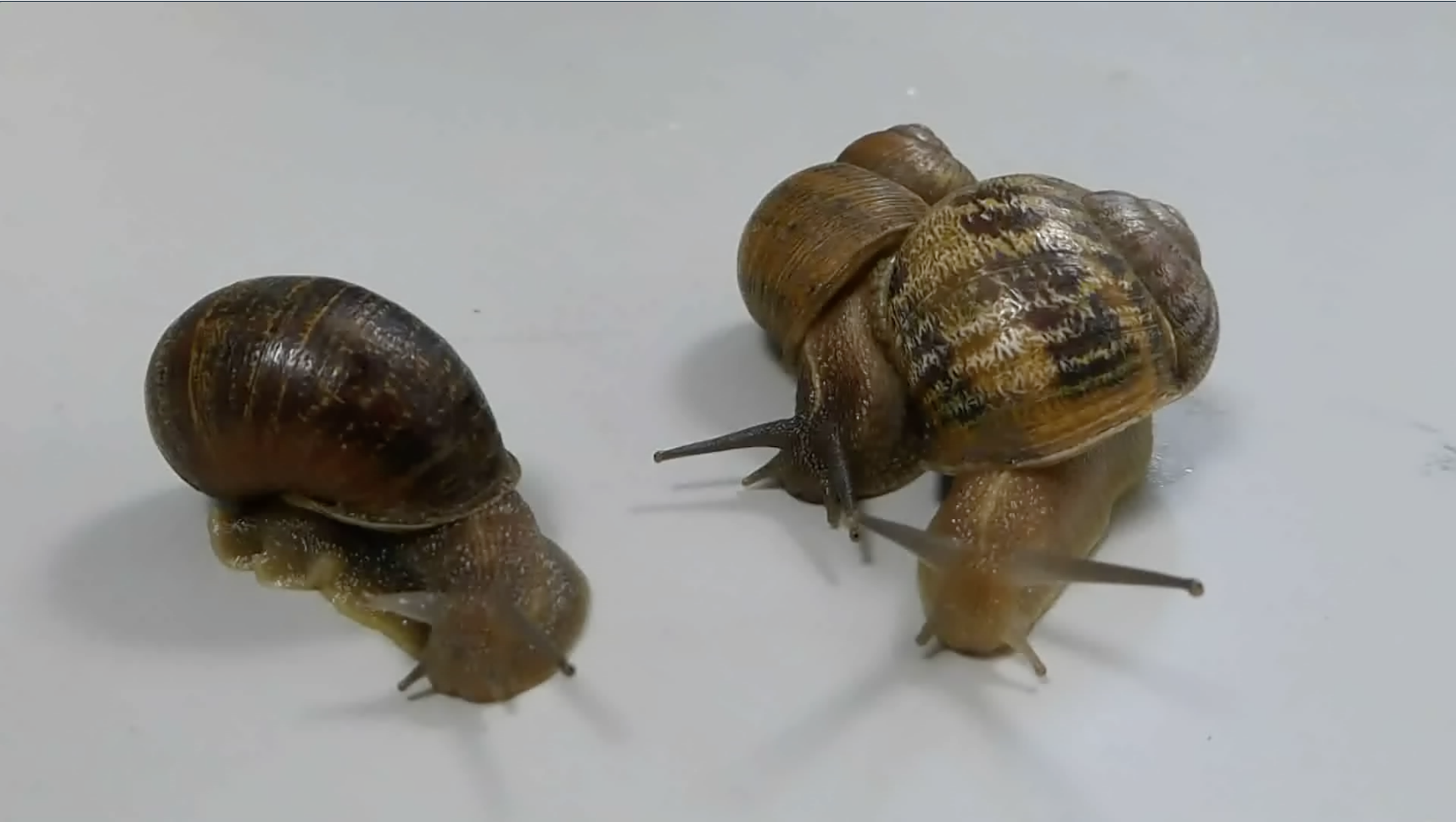Meet Jeremy, a brown garden snail in the U.K. who is struggling to find love.
Jeremy, who repels most mates because of a rare genetic condition that left him with an unusually shaped shell, was dealt his latest blow last month when he woke up from hibernation only to find two of his possible suitors mating with each other. Their babies now crawl all over him.
“It’s tragic, isn’t it? They mated with each other. And Jeremy so far has been left on the shelf,” said Angus Davison, 49, an associate professor in evolutionary genetics at the School of Life Sciences at the University of Nottingham, who has been studying Jeremy for more than eight months.

Davison hand-delivered the pair of potential mates to Jeremy in April after putting out an international call for snails that have the same rare genetic condition. It was a shot in the dark since Davison estimates Jeremy is one out of a million. The difference is that his shell coils left, while the majority of snails of his kind have right-coiling shells. Snails are genderless, but their reproductive organs need to align for mating, which is impossible with differently coiled shells.
“Jeremy, we presume, doesn’t know he coils the wrong way,” Davison told TIME.
Davison said he was hoping Jeremy would take to at least one of the two snails and produce offspring that could help researchers better understand the genetic abnormality.
The three snails went into hibernation for three months at the lab in the winter. When they woke up in April, Jeremy was spurned. His roommates — Tomeu and Lefty — appeared to decide that Jeremy lacked energy, so they found each other.
“Tomeu and Lefty were really lively fairly quickly and Jeremy was really, I have to say, sluggish,” Davison recalled.
The two snails have since produced more than 200 babies, some of which have been spotted crawling on Jeremy. They’re still mating, Davison said, sometimes leaving Jeremy to slowly turn away.
The researchers technically no longer need Jeremy to reproduce since they have enough offspring to begin their study, which they say would give insight into the rare condition as well as a common understanding of body asymmetry in other animals, including humans.
But Davison said he is still dedicated to helping Jeremy finally get lucky, especially after securing international interest in his plight. “Scientifically, it doesn’t matter. But the Internet cares, and I care,” he said. “It would be sad if Jeremy didn’t ever mate. Put yourself in Jeremy’s shoe.”
“But we are still hopeful,” Davison added. “We’ll give up when he dies. I’m sort of now committed to seeing this through to the end.”
More Must-Reads from TIME
- Donald Trump Is TIME's 2024 Person of the Year
- Why We Chose Trump as Person of the Year
- Is Intermittent Fasting Good or Bad for You?
- The 100 Must-Read Books of 2024
- The 20 Best Christmas TV Episodes
- Column: If Optimism Feels Ridiculous Now, Try Hope
- The Future of Climate Action Is Trade Policy
- Merle Bombardieri Is Helping People Make the Baby Decision
Contact us at letters@time.com